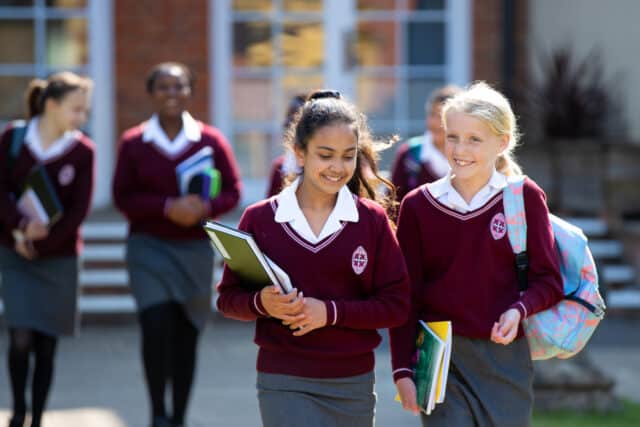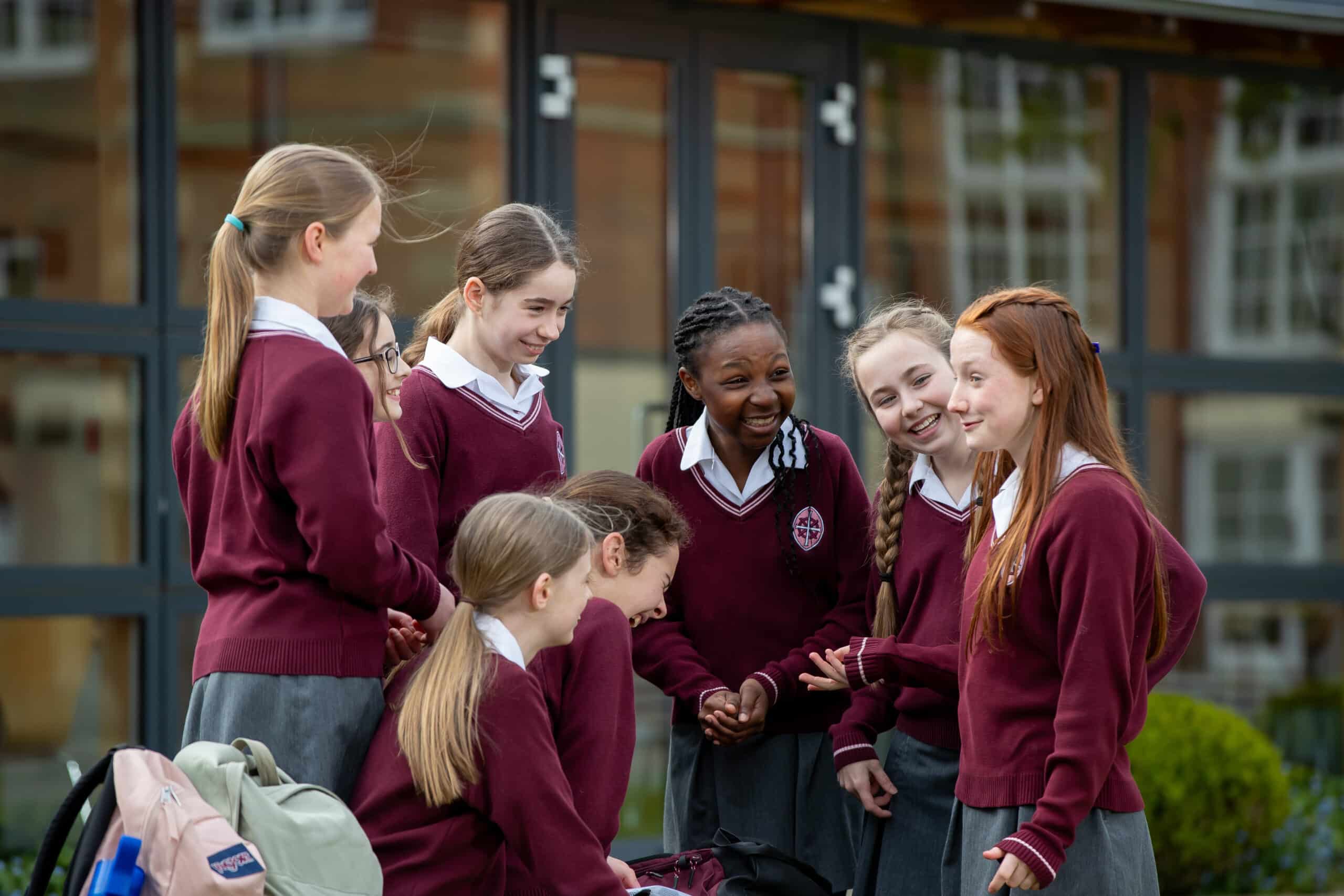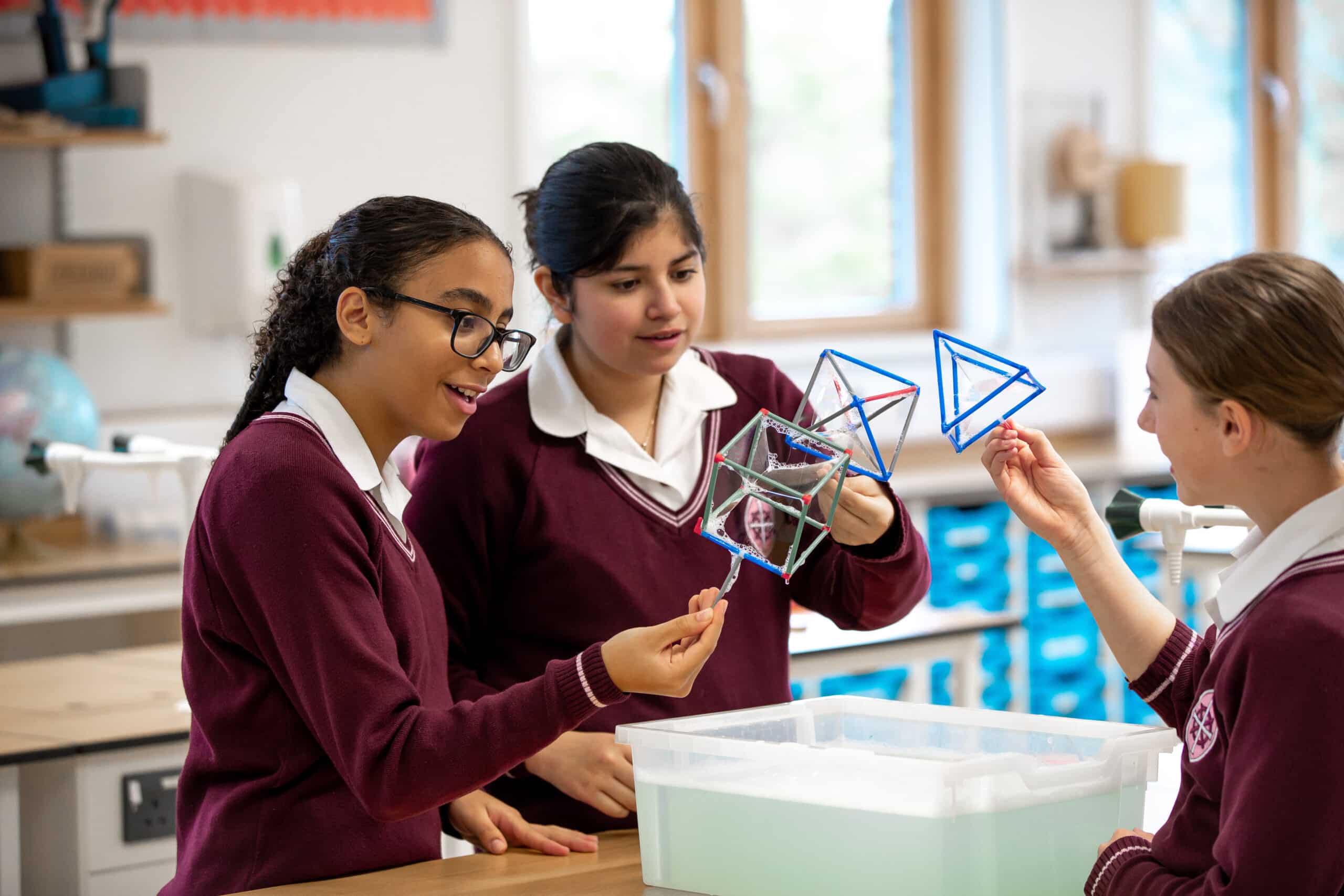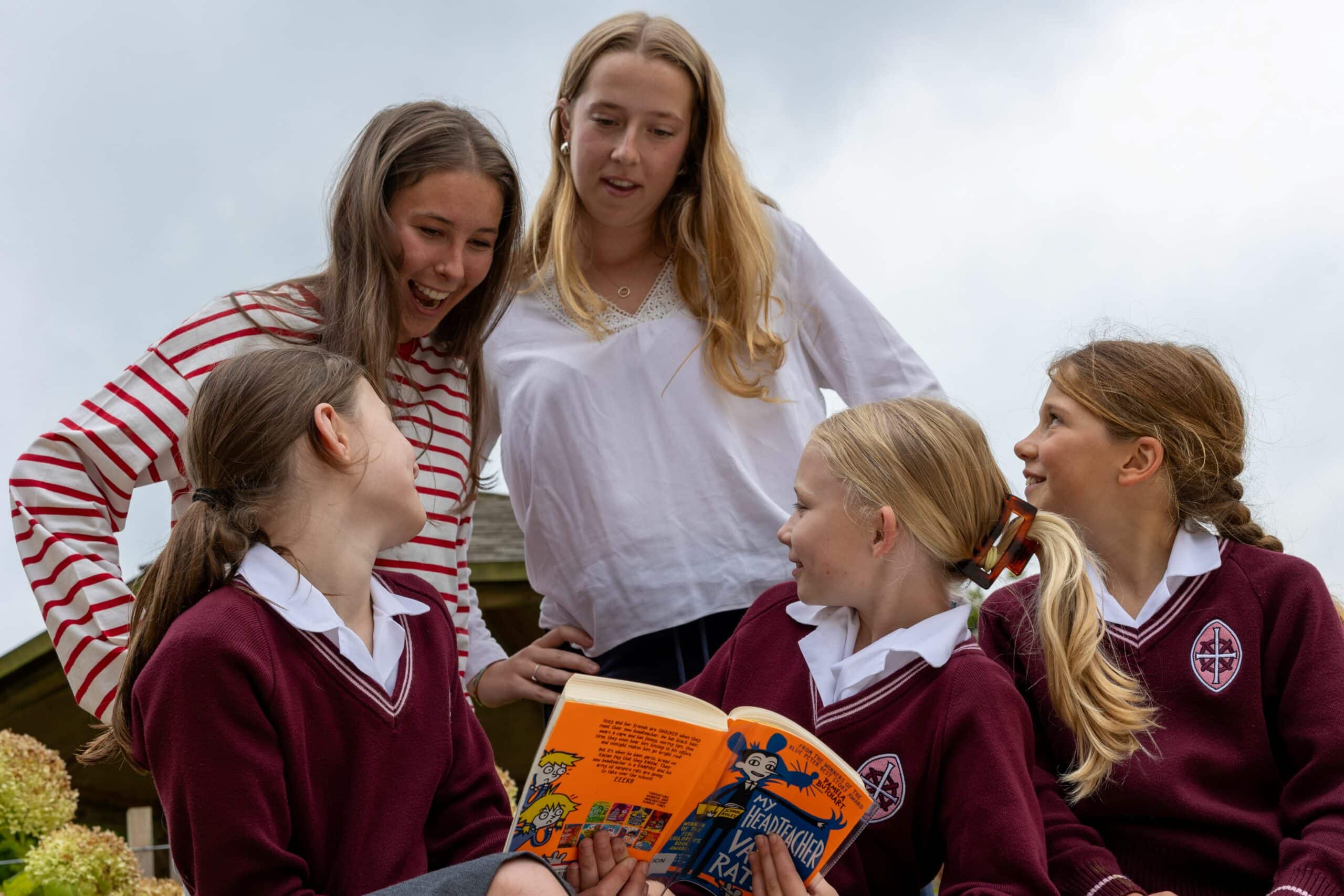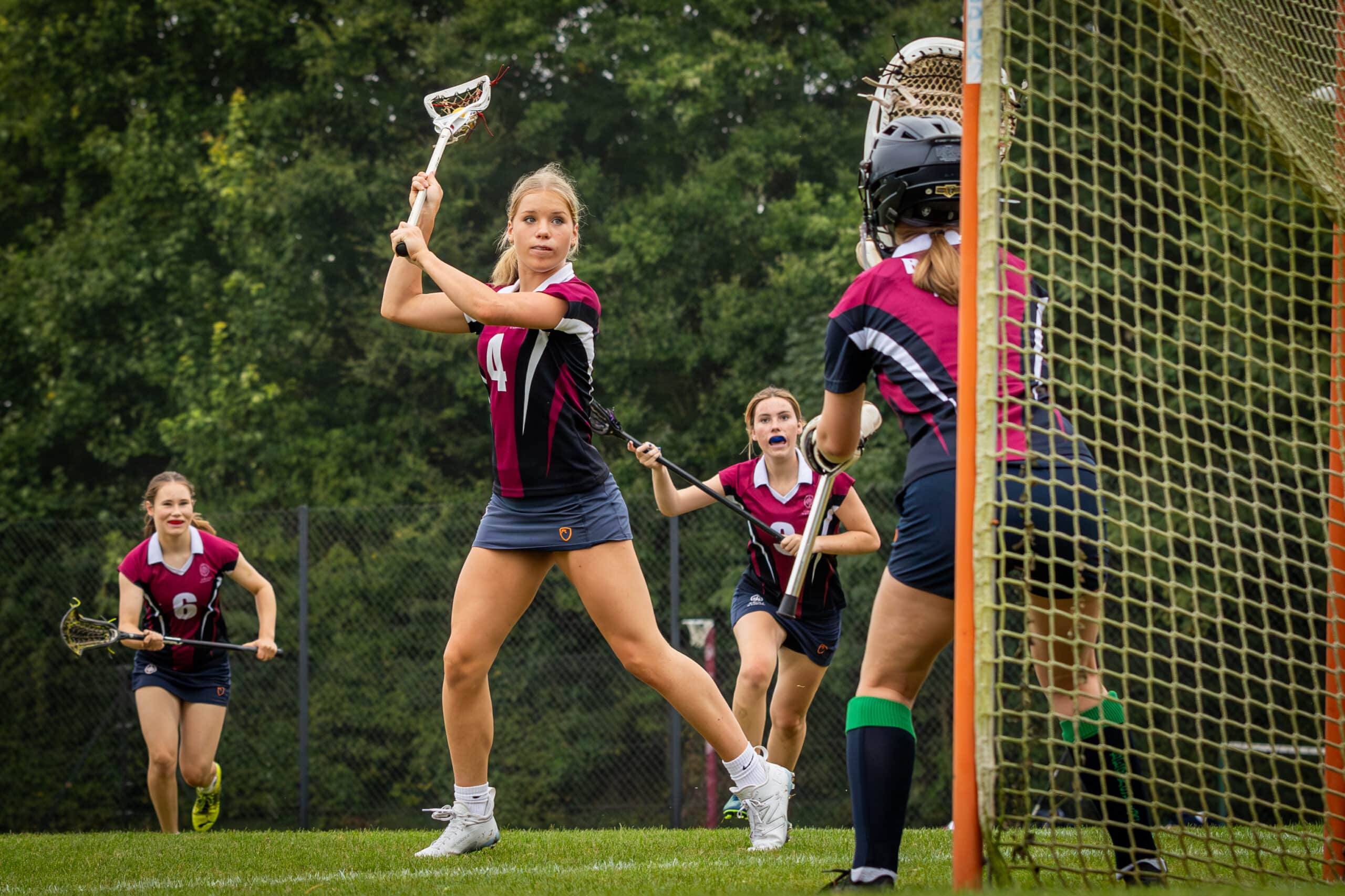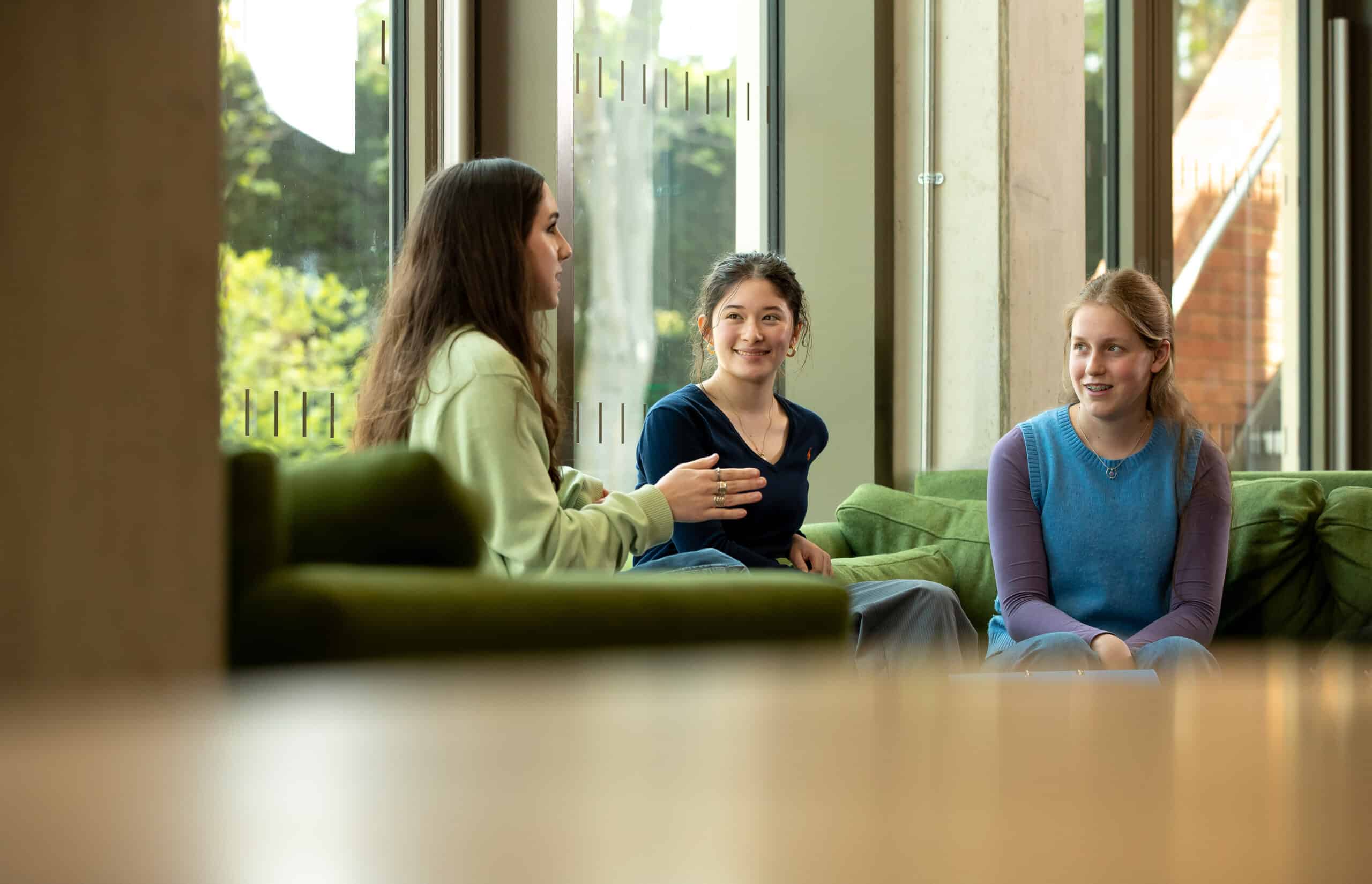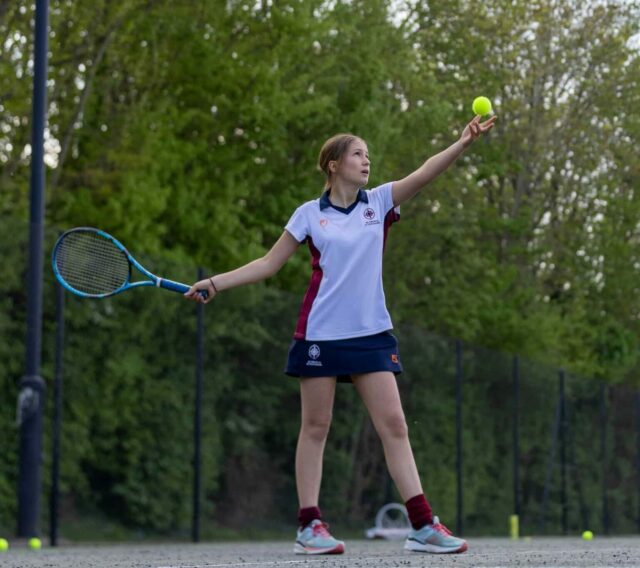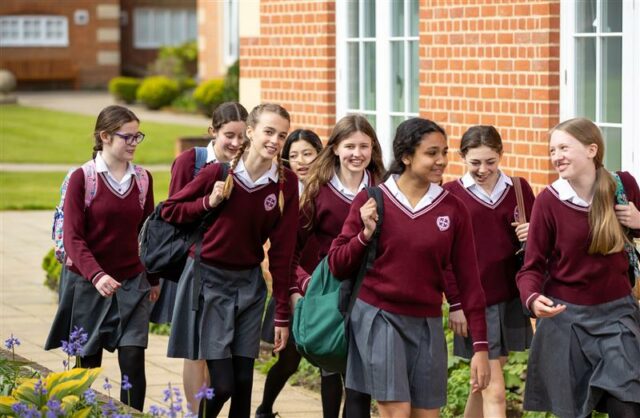At our Service of Remembrance on 10 November 2023, our Health & Safety and Compliance Manager, Steve McAllister shared with the school community this powerful, first-hand account of serving in the British Army.
Good morning, my name is Mr Steve McAllister, I am the Health & Safety and Compliance Manager here at St Helen’s. I am also a Veteran and served for over 30 years in the British Army. For the next five minutes or so I would like to talk to you about my remembrance journey, when and where it started and what it is today. For a lot of people like me, it’s not just about remembering once a year. I remember people, situations and places all year round, not every day but most days – and most veterans do the same.
My first recollection of Remembrance Day is when I was a young boy living in Scotland, younger than most of you sat here today. I grew up in a working-class community and most, if not all, families had a connection to the military – mothers, fathers, aunties, uncles and most definitely grandparents would have served in the military. My great grandfather was in the Machine Gun Corps in WW1, both my grandfathers served in WW2 and my mother and father were both in the Army.
I remember hearing conversations that my family had. My grandfather who served in WW2 who never spoke about bad or terrible things, but would always talk about his friends, especially the friends that never came home, and I remember the true sadness that I could see in his face when he did.
I remember the TV programmes becoming more about the history of war and conflict, and the news starting to focus on the upcoming events. When the Remembrance Parade was shown on TV, I remember seeing frail old veterans in wheelchairs who had fought in WW1 and wondering what they had been through, not really understanding what that was, but I did know that many never came home.
They were some of the last WW1 veterans alive in the UK and now there are no veterans of WW1 left anywhere in the world, but I still remember them, and I remember those that did not have the opportunity to attend a Remembrance Day Parade, who never came back when the wars had ended.
Now the oldest veterans on Remembrance Day Parades are the women and men from the Second World War. It’s estimated there are around 300,000 WW2 veterans left in the UK. That number will go down rapidly over the coming years, and soon enough there will be no more WW2 veterans left anywhere in the world, but I know that I will remember them and those that never came home.
As an eight-year-old boy I can remember watching a war as it was happening, when Argentinian forces invaded the Falkland Islands. It looked brutal and it’s the first time that I can remember hearing British Military deaths being announced over the TV. 255 British military personnel during that conflict made the ultimate sacrifice.
Then it was my turn. I always wanted to join the army due to the influences within my family. I left home at 15 and jumped on a bus to London, excited and terrified at the same time, but compared to those who left home during the world wars, I had a better deal. I could only imagine what it would have been like, knowing that when I completed military training I would be going to war. I was also a volunteer and wanted to join up – during the first and second world wars, many were not and were forced to join up and fight. A lot of them did not return.
I remember deploying to Iraq and Afghanistan. The first time not knowing what to expect. A bit scared, nervous, missing home, but I knew I was going to a secure base and not a trench on the front line. My training and equipment were the best in the world and there was plenty of it. I would be getting the food and water I needed to survive and operate, unlike those in past conflicts and wars who sometimes went days without food. Although it was a dangerous place and I was doing some dangerous work, it was easy compared to soldiers of the world wars.
I remember how hard it was at times to be able to do my job. Looking after myself, my equipment and vehicles felt like a constant battle. Considering it was some of the best and most up to date in the world, with engineers, technicians and spares available most of the time. Again, in hindsight, I had it easy compared to those in the world wars. A lot of them had to beg and borrow, they had to take weapons, equipment and clothing from those that no longer needed it, because they were injured or worse, dead. That must have been tough, especially when they were getting it from their friends.
I remember being so tired I would fall asleep standing up, but I knew I would eventually get my cot bed out and get my head down. No matter where we went or what we were doing, rest was always put into the plan and there was very little that would change that. In comparison, during the trench warfare of WW1 the enemy bombardments would be continuous for days at a time. Rest during those times was a luxury, sleep being a privilege that soldiers sometimes didn’t get for days and if they did, it would only last for minutes at a time.
I remember the friendships I made, working and operating with people from all parts of the UK and the Commonwealth. Those friendships got me through some tough times and were tested on many occasions under some difficult situations. I think back to my grandfather and the joy and sadness that he showed when talking about his friends and remember him saying that he couldn’t have gotten through it without them. It saddens me that the friends he talked about he never saw again after the war. Unlike us with the power of social media, able to chat to someone at any time on the other side of the world.
I remember the times I was involved in some enemy action. In Afghanistan, we would be contacted by the enemy every time we were out of the base, bullets flying past or bouncing off my vehicle, rockets being fired at us, trying to avoid IEDs – unsuccessfully at times. That was nothing compared to grabbing your rifle, jumping out of your trench and running face-first towards machine gunfire. Knowing you are more likely to die than live, like they had to do during the world wars.
There was always a need to keep the morale of the troops high. We did this mainly by taking part in sports, but there were always other ways to do this – raising money for charity, visits from celebrities or Gary Barlow putting on a concert.
The need for keeping morale high has always been there, such as Dame Vera Lynn and George Formby entertaining the troops during WW2; troops during WW1 performing concerts to entertain everyone; games were played; and probably the most famous game of football took place on 25 of December 1914 when both the British and German soldiers lay down their weapons, met in No Man’s Land, exchanged handshakes and played a game of football – now known as the ‘Christmas truce’.
I remember the first time I lined the runway in Afghanistan, watching a Union Flag-draped coffin being carried past on its way back home. Inside it, someone’s son, brother, uncle and grandson. The family back in England getting ready to welcome him home at RAF Lyneham and I knew that the family in England were going through the worst experience of their life.
Something the families in the past never went through. Troops who died during those wars and conflicts never got to go home, they were buried where they fell, or close to where they fell, and most families didn’t get the chance to properly say goodbye. Some soldiers on the front line were never found and their names remain on memorials to the missing, like the Menin Gate in Belgium.
I remember soldiers who I bumped into along the way. I wouldn’t exactly call them close friends, but I spoke to them, had a pint with some of them and trained alongside them. Unfortunately, they also made the ultimate sacrifice, and their families were never the same again.
I think about many other friends that made it back and got reunited with their families but were changed forever. Life for them was filled with a darkness they could not get rid of and sadly the only way to get rid of their pain was to take their own life.
Now when I see the parade march past the cenotaph in London, I notice that a lot of the veterans there are younger than me. I see the WW2 veteran contingents getting smaller and I know that one day there will be none left.
Remembrance for me now, is firstly remembering those who have died during war and conflict. I think about that quite regularly throughout the year, which will never change. I think about the families going through the rest of their life without someone they loved, and I think about those who struggle to live with the trauma they went through and those who couldn’t.
We have a new King who is about to lead his second Remembrance Day Parade. We have the armed forces ready and prepared to do us proud on Sunday, and we have thousands of veterans marching and lining the streets of London and in many places across the country.
One thing I know will continue beyond my lifetime, and I hope it always does, and that is: We will remember them.

